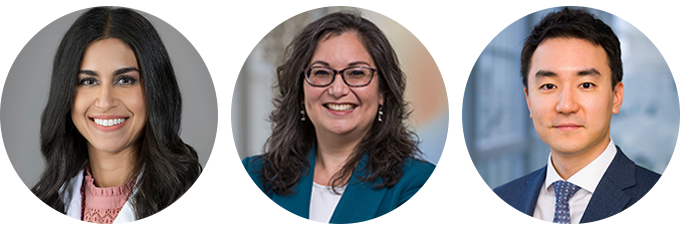Congratulations to this year’s “DocStars” – Proshad Efune, M.D., Robin Higashi, Ph.D., and Dominic Moon, M.D. – who all show great promise for medical innovation. Each investigator received a DocStar grant from The Cary Council, which has been providing crucial funding to advance the early-stage research of UT Southwestern young investigators since its founding in 2015.


Dr. Efune is Assistant Professor in the Departments of Anesthesiology & Pain Management and Pediatrics at UTSW. Her work seeks to predict which children will be at risk for severe breathing complications following tonsil-removal surgery in order to better monitor those children in the hospital, while giving children who are not at-risk the opportunity to recover at home. After earning her medical degree at UTSW, Dr. Efune completed a residency in pediatrics at Children’s Hospital of Philadelphia, followed by a residency in anesthesiology at UTSW. She then completed fellowships in pediatric critical care medicine and pediatric anesthesiology at UTSW.
Dr. Higashi is Assistant Professor in the Department of Population and Data Sciences and is working to improve delivery of telehealth care to cancer patients among underserved populations in the Dallas-Redbird. Dr. Higashi’s work will uncover the unique challenges of those patients that can hinder their access to care and develop strategies to address those challenges. She earned an undergraduate degree in psychology at Stanford University, a master’s degree in anthropology at University of California, Berkeley, and a doctorate in medical anthropology at University of California, San Francisco.
Dr. Moon is Assistant Professor in the Department of Radiation Oncology whose research aims to tailor head and neck cancer treatment regimens to each specific patient. He is developing a blood test to help physicians predict how an individual’s cancer will respond to different treatment options. He earned his medical degree at University of Michigan Medical School. He also spent a year conducting translational research at the National Institutes of Health through the prestigious Medical Research Scholars Program during his time in medical school. He then completed his residency training in radiation oncology at the University of North Carolina Hospitals, where he served as Chief Resident.